Sorted by date Results 1 - 25 of 86

Scandium doping improves stability, cycle life in sodium-ion batteries. Unveiling a technique that could advance alternatives to lithium-ion energy storage, researchers at Tokyo University of Science have demonstrated how introducing scandium into sodium-ion battery cathodes markedly extends their cycle life and stability. Driven by the need for affordable and widely available materials, researchers have accelerated the development of next-generation batteries that reduce... Full story

Earth-abundant tech could advance solar panels, lighting, displays. Emerging from a push to revisit overlooked compounds, National Renewable Energy Laboratory researchers have developed a new class of tiny semiconductor crystals built from Earth-abundant ingredients, combining chemical stability with tunable properties that position them as candidates for next-generation lighting, solar, and electronic technologies. First glimpsed as a scientific curiosity more than 30 years... Full story

Northwestern breakthrough may replace iridium in green hydrogen production. Through the use of multi-metal "megalibraries" at the nanoscale, scientists from Northwestern University and the Toyota Research Institute (TRI) have discovered an alternative to high-priced iridium as a catalyst for producing hydrogen – a zero-carbon fuel for clean energy. While hydrogen is the most abundant element in the universe, here on Earth, it is rarely found in its pure form. Instead, it is t... Full story

Nontoxic polymer extracts gold from ore and e-waste. With gold central to both global industries and economies, researchers from Flinders University have developed a safer and more sustainable alternative to the hazardous methods traditionally used to extract this precious metal from ore and electronics. Beyond its monetary value, gold is deeply woven into technologies that power and sustain modern life – from communications systems to medical devices – yet, despite its sig...
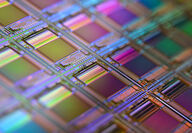
Researchers unite across Europe to build next-gen computing circuits. In a pan-European initiative to push quantum computing beyond current physical and performance limits, researchers across Italy, France, and Germany are developing a new class of quantum processors using light instead of electricity, and built on glass instead of silicon. As digital systems push the limits of classical computing, demand has grown for machines that can tackle problems beyond the reach of... Full story

Machine learning helps design materials that lower cooling costs and energy use. With some assistance from machine learning and AI, an international group of scientists has developed materials that can lower the temperature of homes, commercial buildings, and urban landscapes without the costs and energy consumption associated with traditional cooling systems. Known in scientific circles as three-dimensional thermal meta-emitters, these specialized materials leverage the prope... Full story

Researchers alter atomic structure of cerium to emit visible light. In a discovery that challenges long-held assumptions about the behavior of rare earth elements, scientists have taught cerium – a metal best known for its invisible ultraviolet glow – to shine visibly yellow by reshaping the chemical environment around its atoms, opening a new frontier in how these elements can be coaxed into revealing capabilities hidden within their makeup. Critical to nearly every fac... Full story
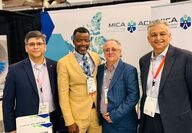
Powerhouse partnership adds to countrywide list of stakeholders. Global electrification and automation leader ABB has joined Canada's Mining Innovation Commercialization Accelerator (MICA) Network to fast-track mining innovation through cleaner, smarter, and more efficient technologies by opening new pathways for collaboration with Canadian clients on pilot projects, accessing government-backed funding, and advancing automation and low-emission solutions across the country's... Full story

Japan builds first diamond transistor for extreme conditions. In a breakthrough that could redefine the future of electronics in extreme environments, scientists in Japan have created the world's first diamond-based transistor capable of operating at high temperatures – opening the door to ultra-efficient chips that can handle intense heat and radiation where traditional silicon fails. Long prized for their beauty and durability, diamonds are quickly becoming a scientist's b...
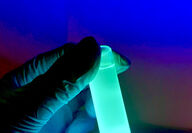
Programmable material can help track illness, pollutants, and more. In a development that could advance everything from medical imaging to environmental sensing, researchers at the University of Missouri have engineered ultrabright, programmable chemical sheets designed to bind with specific molecules – offering a customizable tool for detecting biological markers, pollutants, and other trace materials. From highlighter dyes in lab tests to glowing markers in medical scans, f... Full story
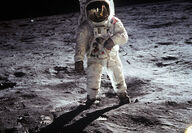
Lunar regolith and perovskites offer a path to in-situ power production. Using simulated moon dust, researchers at the University of Potsdam, Germany, have developed lightweight, radiation-resistant solar cells by pairing lunar regolith with perovskite crystals – a potential solution to the logistical challenge of powering future missions, habitats, and infrastructure directly on the Moon without relying on heavy, Earth-made panels. While much of the attention on lunar e...
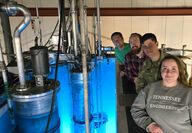
Testbed simulates deep-space heat for future Mars-bound propulsion systems. Cranking up the heat on space propulsion, researchers at Oak Ridge National Laboratory have developed a high-temperature testbed capable of reaching nearly 4,000 degrees Fahrenheit to simulate the extreme conditions nuclear fuels will face in deep space – a major step toward advancing thermal propulsion systems that could one day carry astronauts to Mars. Though space is often imagined as an endless e...

Palladium-gallium catalyst could boost speed, safety, and sustainability of chemical manufacturing. Gallium is a near-room-temperature liquid metal with amazing properties that are being leveraged for supercomputers, shapeshifting robots, and numerous other high-tech applications. However, the most important trait of this tech metal may be its ability to amplify the strength of catalysts – transforming them into liquid metal super-catalysts used to produce plastics, p...

UT Austin scientists engineer nature-inspired nanostructure on gemstone that could reshape transparency tech across industries. Engineered to resist glare, fog, dust, and even scratches, a newly developed nanostructured surface from the University of Texas at Austin is poised to redefine durability in extreme environments – not only for its remarkable performance, but because it is sculpted from sapphire, a material more often prized for its brilliance than its t...
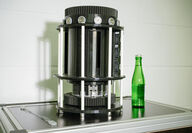
German researchers develop solid-state system that cools using stretchy metal. In search of a cleaner, more efficient way to heat and cool everything from homes to electric vehicles, researchers in Germany have developed a system that doesn't rely on refrigerants, compressors, or combustion – just the precise stretching of shape-shifting metal wires that can swing temperatures by more than 30 degrees. Most modern heating and cooling systems rely on the same basic p...
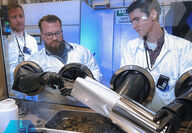
First-of-its-kind system tests reactor elements in continuous loop. At a research facility best known for pioneering nuclear innovation, scientists at Idaho National Laboratory have built a first-of-its-kind test system that moves molten salt through a loop of steel under intense heat – hoping to understand how advanced materials and sensors perform within the harsh conditions of nuclear reactors. As advanced reactor designs push toward higher temperatures and more e... Full story

A dash of acid, a little energy, and eco-friendly transparent aluminum oxide is born. Filipino researchers from Ateneo de Manila University, in collaboration with Japanese scientists from the Nara Institute of Science and Technology, have developed a cost-effective and eco-friendly method to create transparent aluminum oxide (TAlOx). Using mild acid solution and a tiny electric charge, this remarkable technique could revolutionize industries from personal electronics to aerosp...
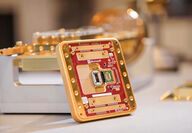
Long-theorized physics concept now reality; newly engineered tech enables ultra-stable qubits that could redefine quantum computing. For over a century, physicists have theorized a form of matter that could resist the natural tendency toward decay, a state so stable it endures where conventional systems degrade – now, almost as if it were inevitable, Microsoft has made it real with Majorana-1, the world's first topoconductor-powered quantum processor. In 1937, Italian p...

Scientists discover how to pack enormous quantities of data into a 1mm rare earth crystal computer storage device. The binary system of ones and zeros has been a mainstay of information storage since the Jacquard machine was invented in the early 1800s to encode complex loom patterns. Fast forward to 2025, and a standard one-terabyte hard drive for home computers and laptops can store as much data as 12.5 billion punch cards once used in early computing. Now, a rare earth...

Boron-doped diamonds become conductive like metal, stay transparent. For centuries, the most valuable materials were prized for their allure, rarity, and resilience, but increasingly, their worth is being measured in something far less tangible: potential. Once mere treasures to adorn the wealthy and powerful, diamonds are now being engineered, reshaped, and redefined in laboratories, where a breakthrough in boron doping has unveiled properties with the capacity to transform q...

Flameless, powerful electric calcination is approaching reality. Cement is the backbone of modern construction, but its production is one of the world's largest carbon emitters. Aiming to change that, the international Electric Calciner Technologies for Cement Plants of the Future (ECem) project is developing advanced electric heating to replace fossil-fueled kilns, with scientists from Helmholtz-Zentrum Dresden-Rossendorf (HZDR) among its collaborators. The project, backed...
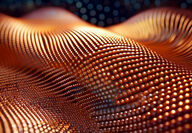
From enhancing virtual reality to controlling tiny scientific samples, dynamic rippling movement manipulates objects magnetically. In science fiction, magnetism has been used to manipulate all manner of materials without touching them, from flying vehicle suspension to containing spheres of antimatter. Meanwhile, a seemingly unrelated long-standing design challenge is communication through touch, a key missing technology in accessibility. There has been a growing demand for... Full story

Launched with Imperial College London as part of an energy transition acceleration program. The global transition to renewable energy will require significant growth in the production and supply of metals and minerals vital to its generation, use, and storage of electricity. The AI boom, increased urbanization, electrification of transportation, and reshoring of mineral production are all playing a role in the growth of a fast-paced and transformative materials industry. As...
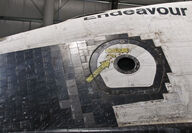
Silicon-carbide exterior tiles for reusable commercial spacecraft withstand the fiery temperatures of traversing Earth's atmosphere. Leading commercial space and defense company Sierra Space announced the results of a collaboration with the U.S. Department of Energy's Oak Ridge National Laboratory (ORNL) to create new silicon-carbide-based exterior tiles – called a thermal protection system – for reusable commercial spacecraft. Atmospheric re-entry exposes a craft to bla...
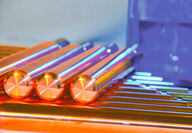
Berkeley Lab team use cutting-edge tech to explore copper efficiency. For over three decades, scientists have chased the dream of room-temperature superconductivity. Now, harnessing the raw power of cutting-edge supercomputers, researchers are unraveling the mysterious interactions within superconductors – unlocking insights that could lead to practical materials capable of conducting electricity with zero resistance, and effectively changing the world as we know it. N... Full story